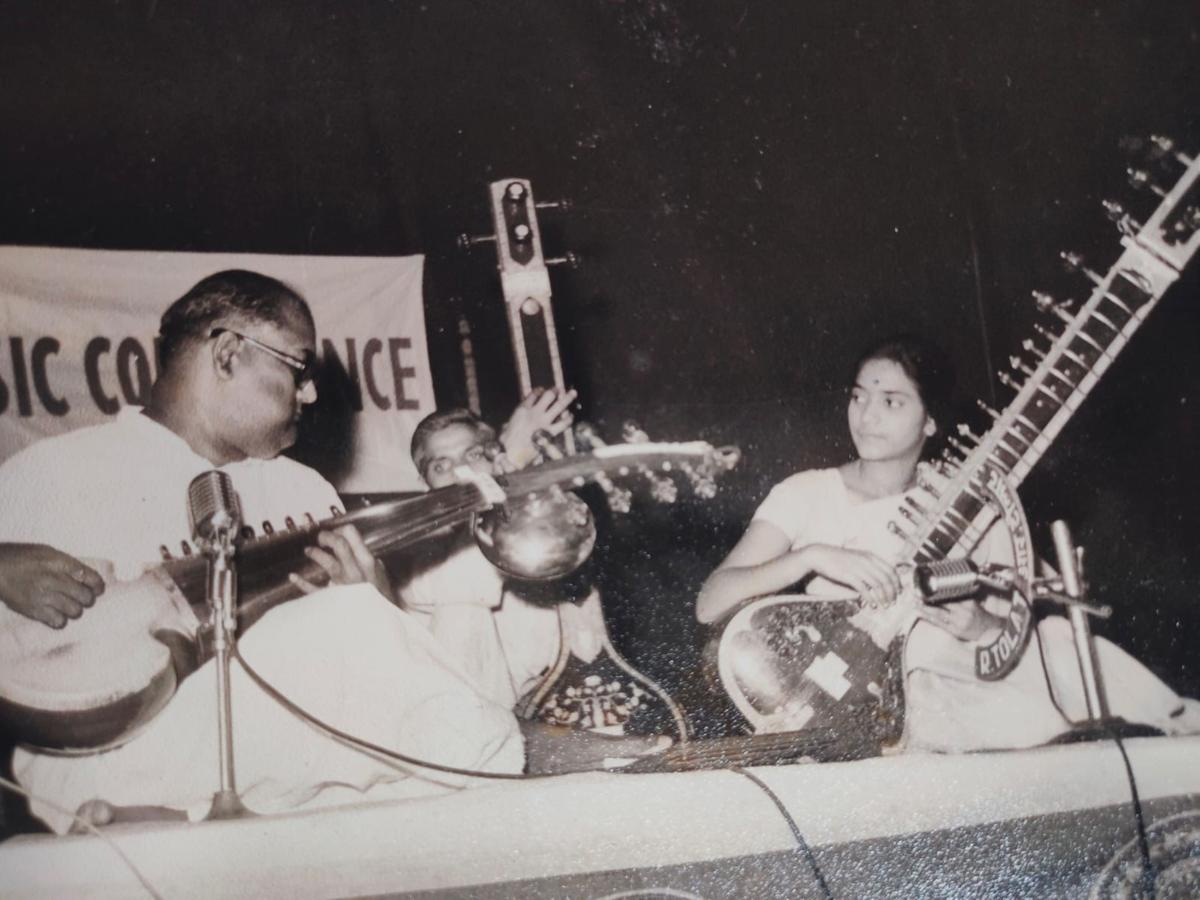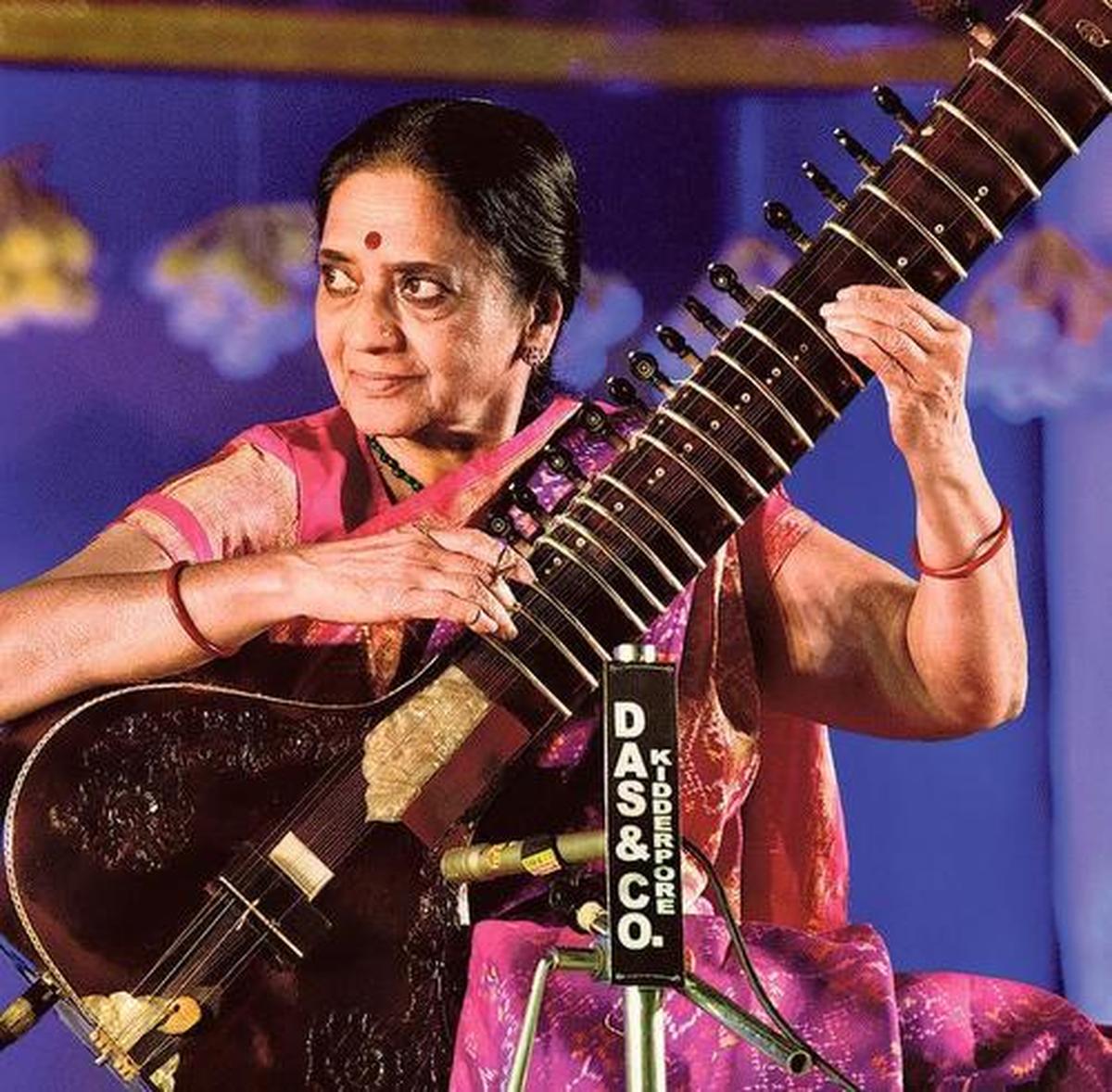Manju Mehta
| Photograph Credit score: The Hindu Archives
Manju Mehta was not solely a fantastic sitar artiste belonging to the Senia Maihar custom, however she was additionally considered one of India’s most revered patrons of music. Co-founder of the nation’s largest music pageant, the 13-day-long Saptak, which was launched in 1980. By means of this occasion, Manju Mehta gave again to the world of classical music what she gained from it as a practitioner.
Born on Could 21, 1945, in Jaipur, Manju belonged to a household of musicians. Her mother and father have been Hindustani vocalists. Each her brothers — Shashi Mohan Bhatt was proficient in sitar and Vishwa Mohan Bhatt in Mohan Veena. Whereas Manju initially learnt from her brother Shashi, she later educated below sitar maestro Pt Ravi Shankar, who was additionally her brother’s guru.

Manju Mehta with guru Pt. Damodar Lal Kabra
| Photograph Credit score:
Particular Association
Manju additionally learnt from the Jodhpur-based sarodist Pt. Damodar Lal Kabra (the primary disciple of Ustad Ali Akbar Khan) within the guru-sishya parampara. She typically spoke about that interval of intense riyaaz, practising round six hours a day, and enjoying the identical raag again and again.
After marrying tabla maestro Pt. Nandan Mehta, (disciple of Banaras gharana doyen Pt. Kishen Maharaj), Manju shifted base to Ahmedabad, and alongside together with her husband constructed Saptak right into a formidable cultural organisation. She took a decade’s sabbatical from stage performances. After the premature demise of her husband in 2010, she spent most of her time in managing Saptak, significantly its in style festivals, music college and archival part.

Manju Mehta throughout a efficiency.
| Photograph Credit score:
Particular Association
It might not be an exaggeration to say that the straightforward and affable Manju Mehta performed a major function in selling Hindustani music in Gujarat. She was the primary girl performer to be awarded the Madhya Pradesh Authorities’s Tansen Samman in 2018, the Kolkata-based ITC Sangeet Analysis Academy award in 2019 and the Sangeet Natak Akademi award in 2022. Retaining the genuine baaj of her gharana, with the give attention to the dhrupad ang aalap and jor, Manju Mehta’s sitar enjoying stood out for its conventional attraction. Her daughter Purvi performs the sitar, and Hetal the tabla, carrying ahead the household’s musical legacy.





